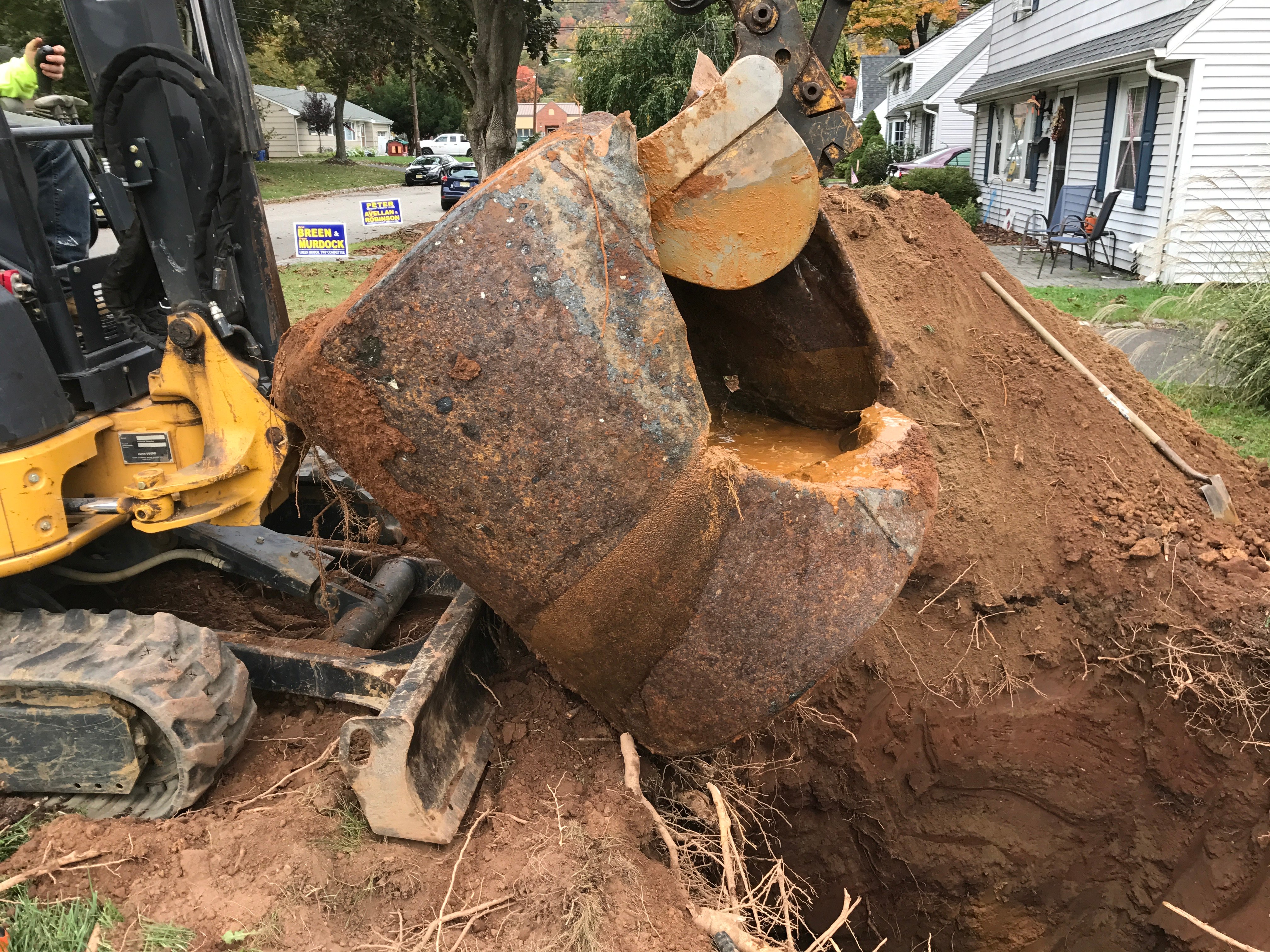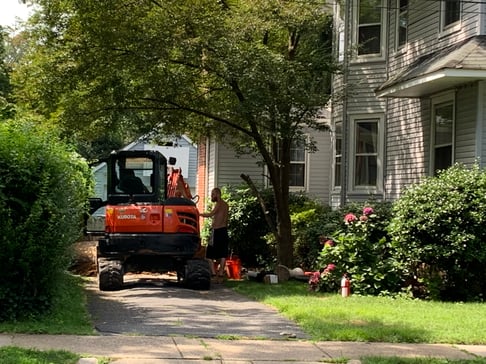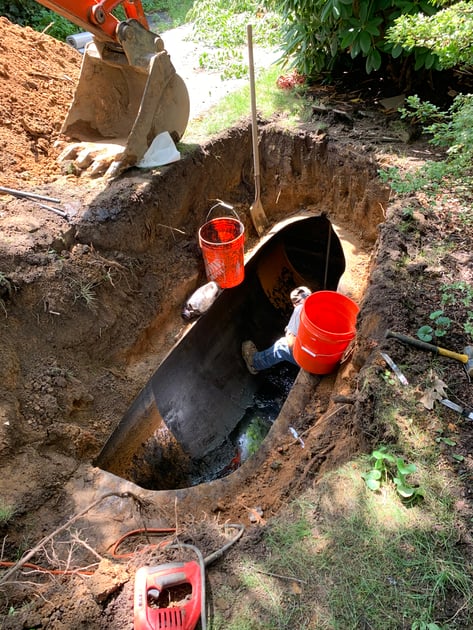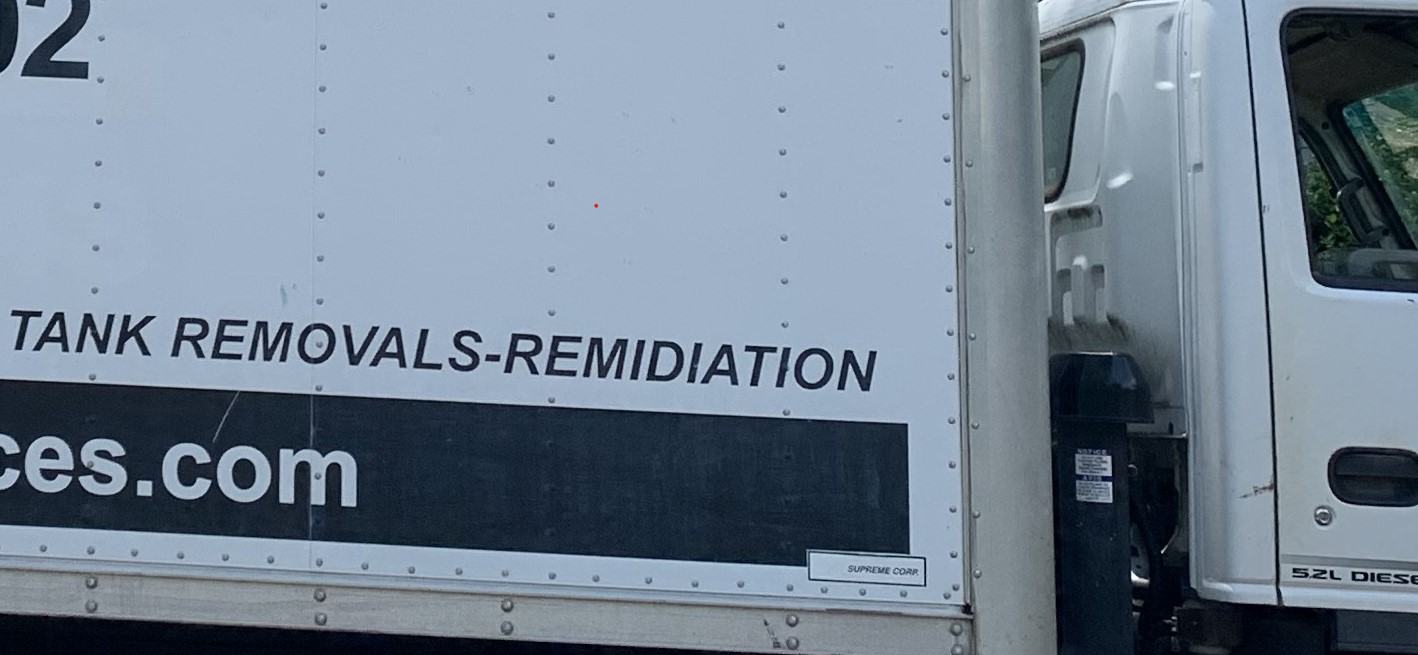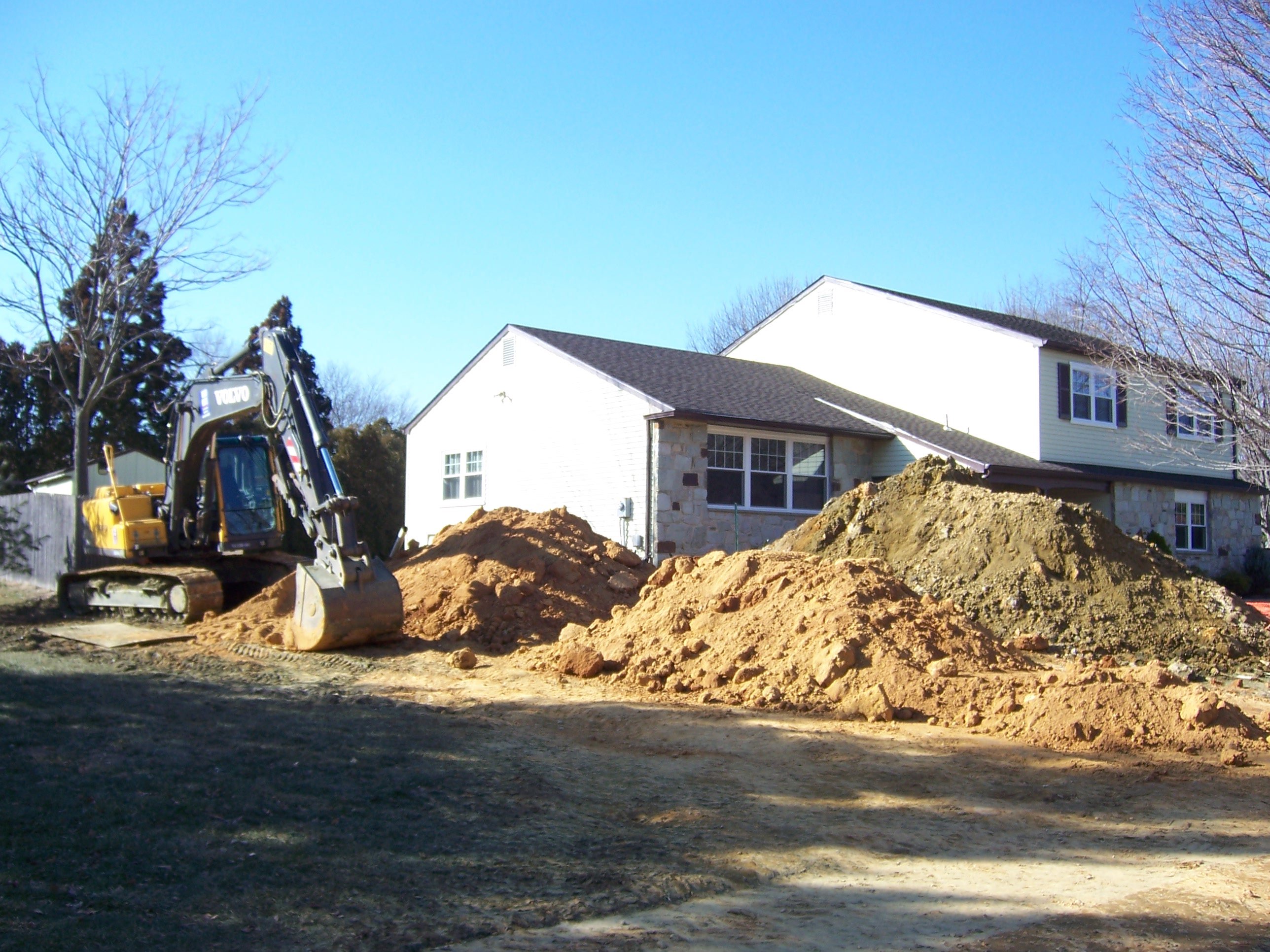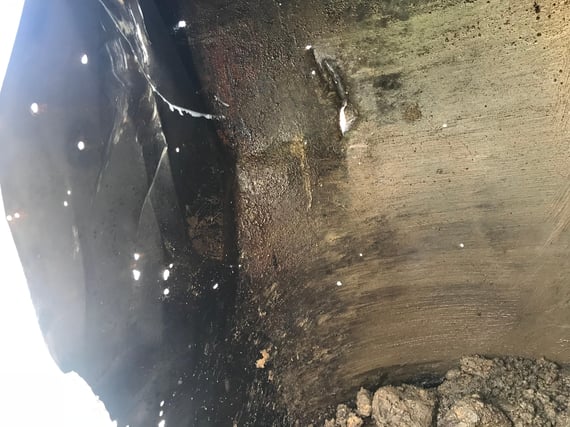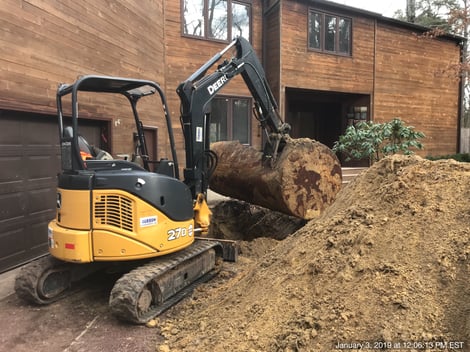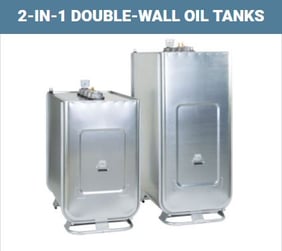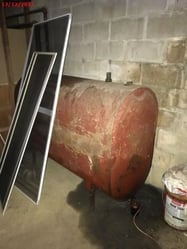Protecting your interest when you buy a property is called Due Diligence and one of the most important due diligence steps you can take is performing a tank sweep with GPR.
Why perform a tank sweep?
Most homes built before 1980 likely had oil heat at one time, so 90% of single-family homes likely had oil heat in the past, possible several owners before. Oil tank are made of metal, they rust, they leak and it can cost thousands if not tens of thousands of dollars to cleanup. You don't want to buy a home that has an oil tank liability.
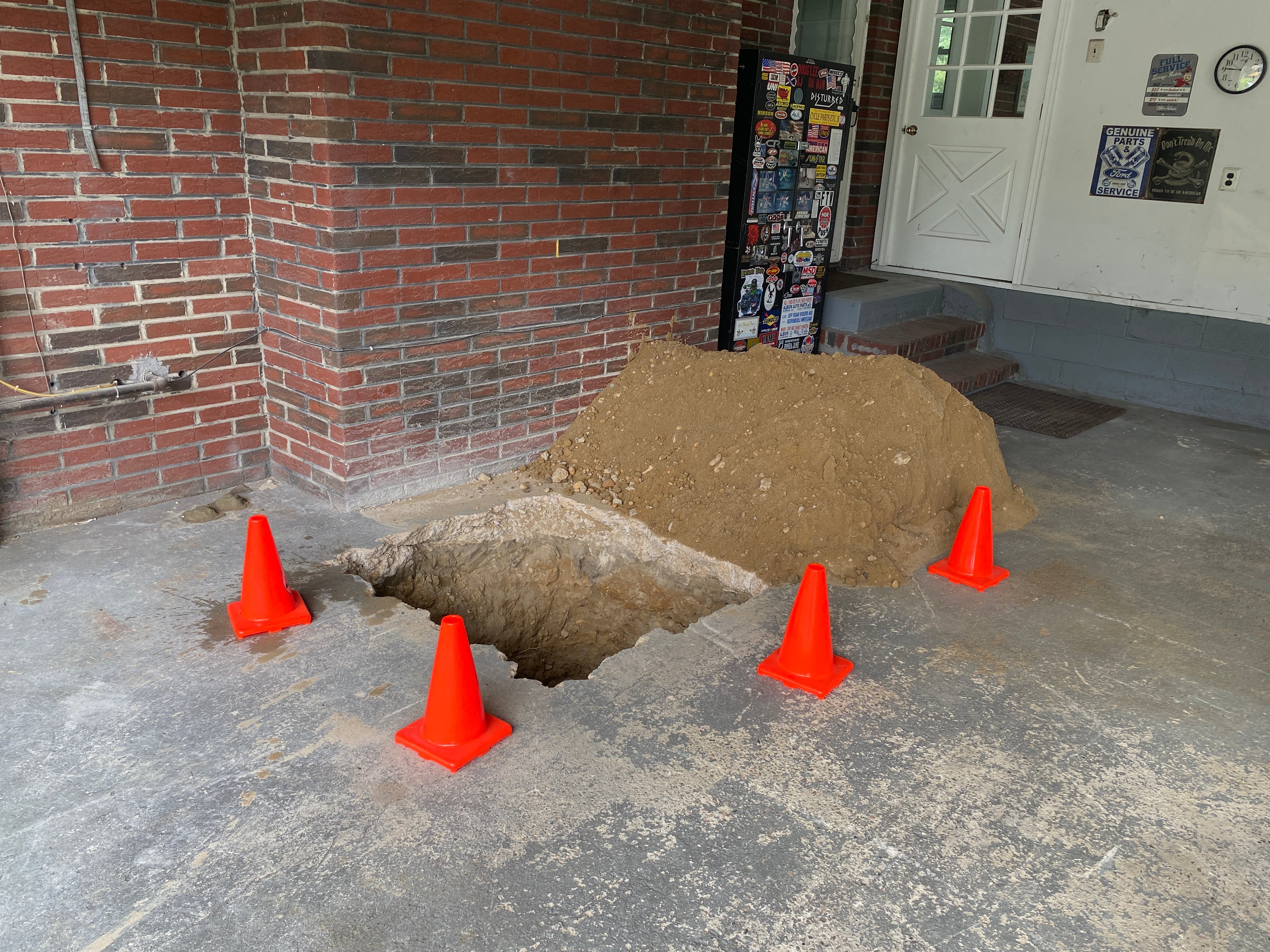
The home in this photo series is circa 1920's, so oil usage was 100%.
Buyers were told the basement had two ASTs (Aboveground Storage Tanks), that were removed. This photo shows where the ASTs were located in the basement.
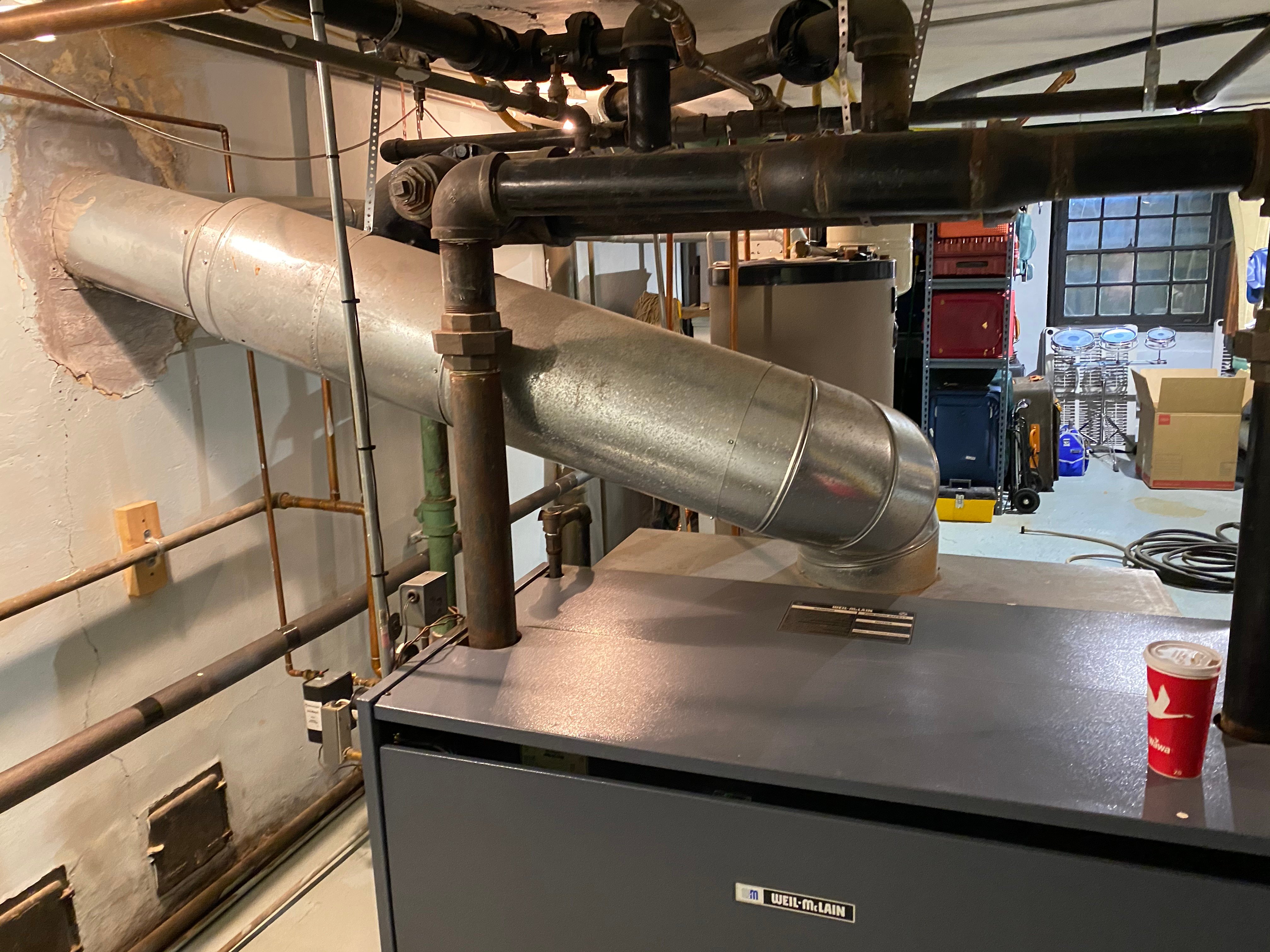
But just because a property had an AST doesn't mean the site didn't have a UST (underground storage tank).
So why bother to do a tank sweep for a property where there is documentation of former Aboveground Storage Tanks? Simple nothing lasts forever and the older the property, the more likely that a tank may have had to be replaced.
Can you see evidence of a UST in this photo?
It's obvious to the trained eye.
888-301-1050
All photos on this page are from the same property. The buyers were told the home had oil heat, the oil tank was an Aboveground Tank in the basement, which was true but seller's failed to mention that the AST replaced an Underground Storage Tank (UST). Or the owners didn't know that there was a UST since they didn't do a tank sweep when they bought the house. Although the sellers had their own consultant use a metal detector to scan the site, which couldn't locate a UST.
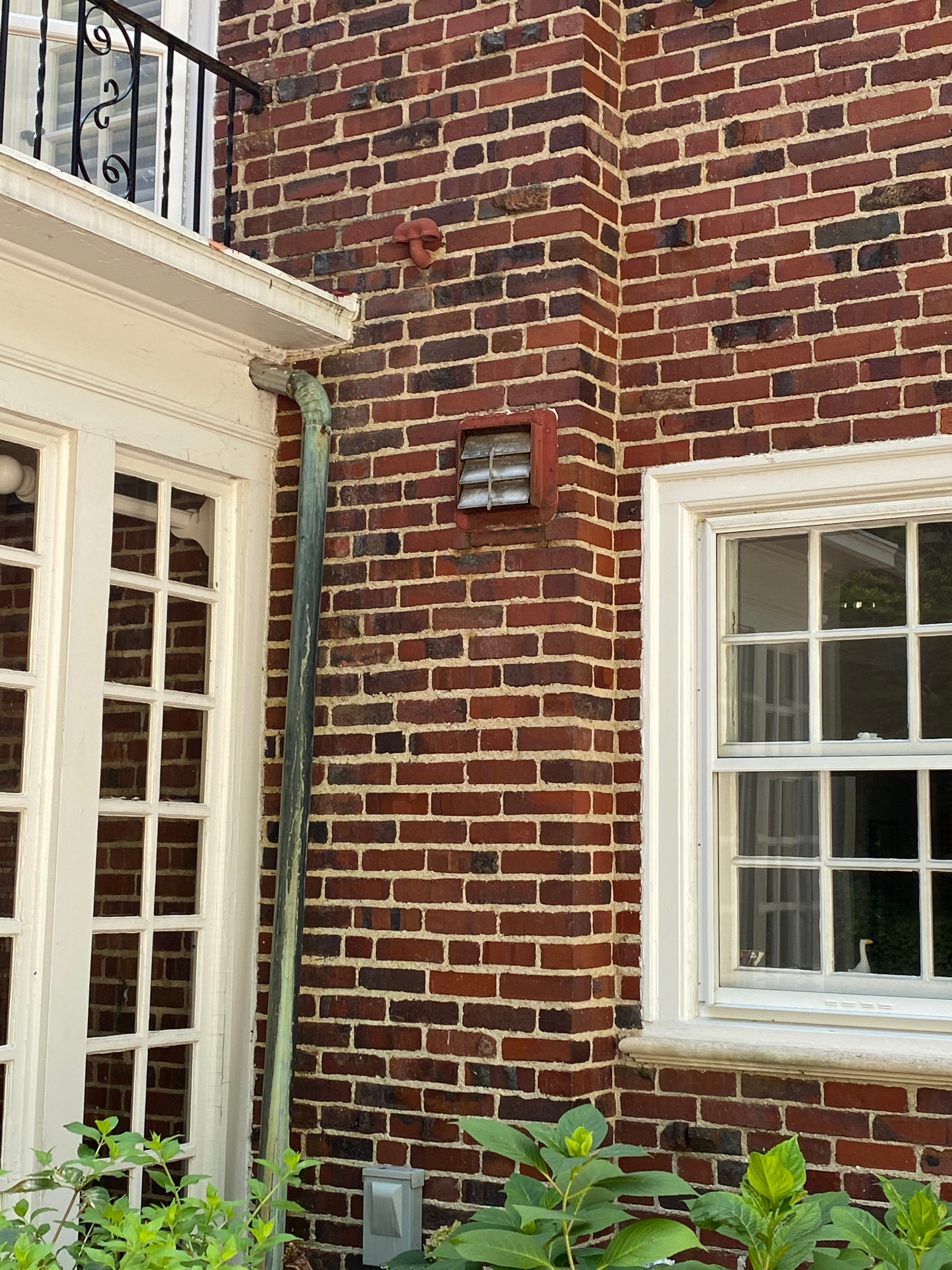
Simple is not always best. No doubt your current smart phone (phone, camera, computer, GPS, etc.) in your pocket is a vast improving from your phone of 10 years ago. Most likely more expensive but it does so much more.
Having the best available technology also translate to an effective tank sweep. A $225.00 tank sweep with an $800 metal detector, it not an effective tool for locating tanks, as the cost of the equipment can attest.
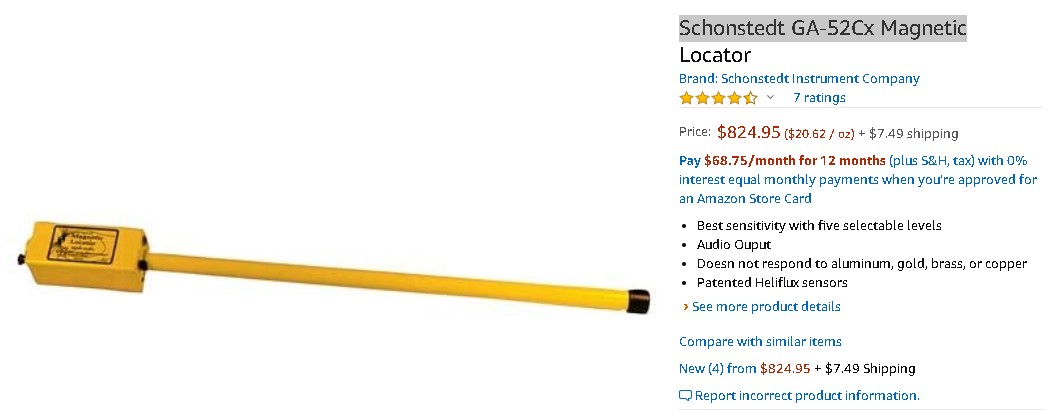
The sellers metal detector results?
The metal detector produced some deflection around the plant bed indicating a possible metal tank. Curren scanned the area with GPR and fund the metal signature were the oil tank lines from the house to the tank.
The metal detector then went over the adjacent driveway. The findings?
The metal detector indicated a slight, faint response at a location about mid-way beneath the driveway directly in line with the remote fill. Due to the faint nature of the signal, possibly caused by wire or rebar in the concrete driveway pad, the location could not be defined.
When you need work performed you want to hire a professional with years of experience and the best possible tools for the job. Curren was hired by the buyers to perform a GPR tank sweep.
Within the first 10 minutes of the Curren technician being on site, we were able to locate the remote oil tank fill which had been covered over with soil. See photo below, the red tile probe is pointing to a round cap in the landscaping which is the tank fill.
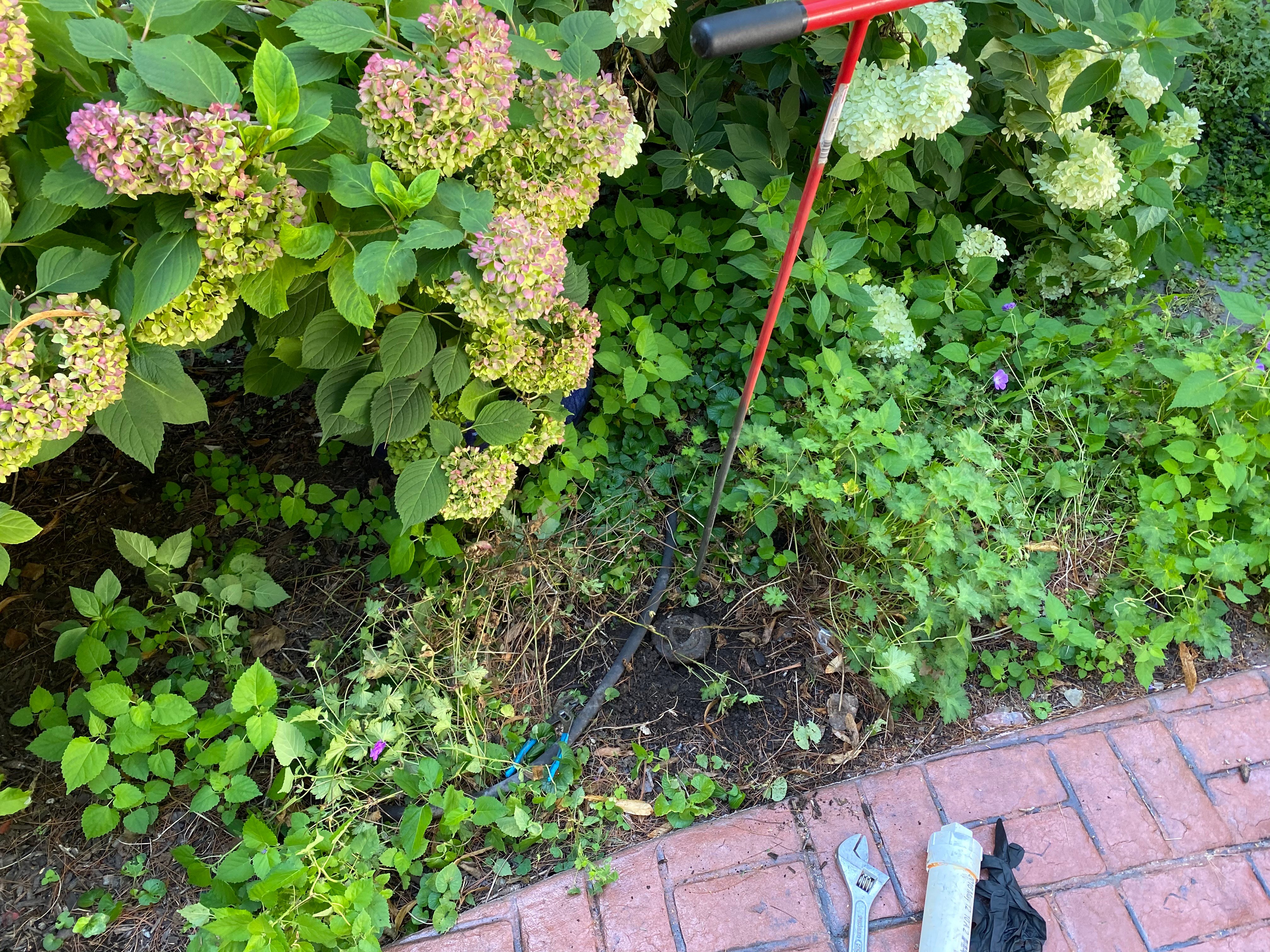

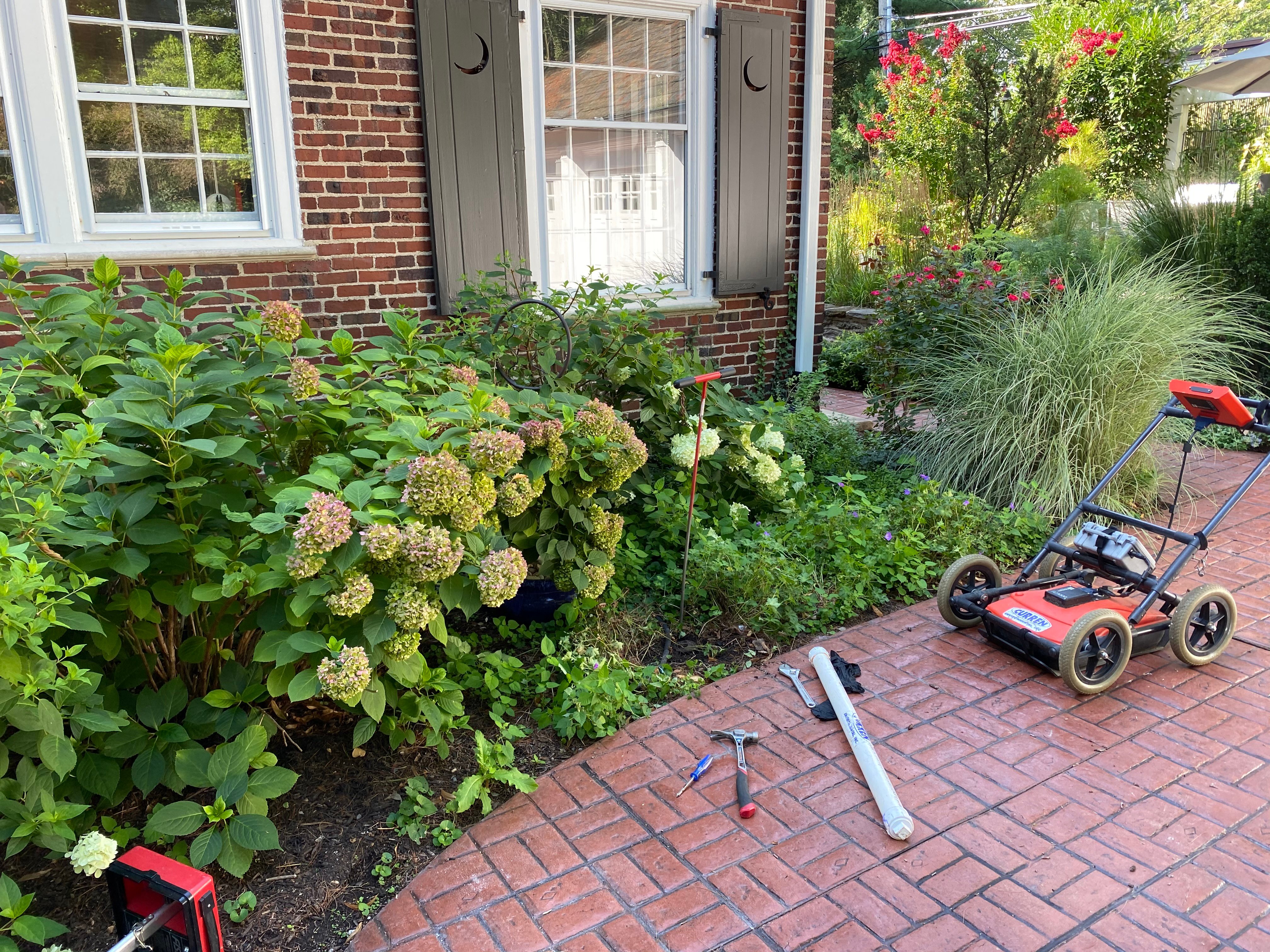
If you were buying a commercial property, you would perform a tank sweep with GPR as that is the standard and most effective approach. But if you are buying a commercial property, you are more experienced than the run of the mill buyer.
Curren scanned the driveway with GPR and located the tank, which the metal detector could not pin point. Yes the owners recently redid the driveway and will have to dig up part of the new driveway to remove the tank. Did the owners know the tank was present?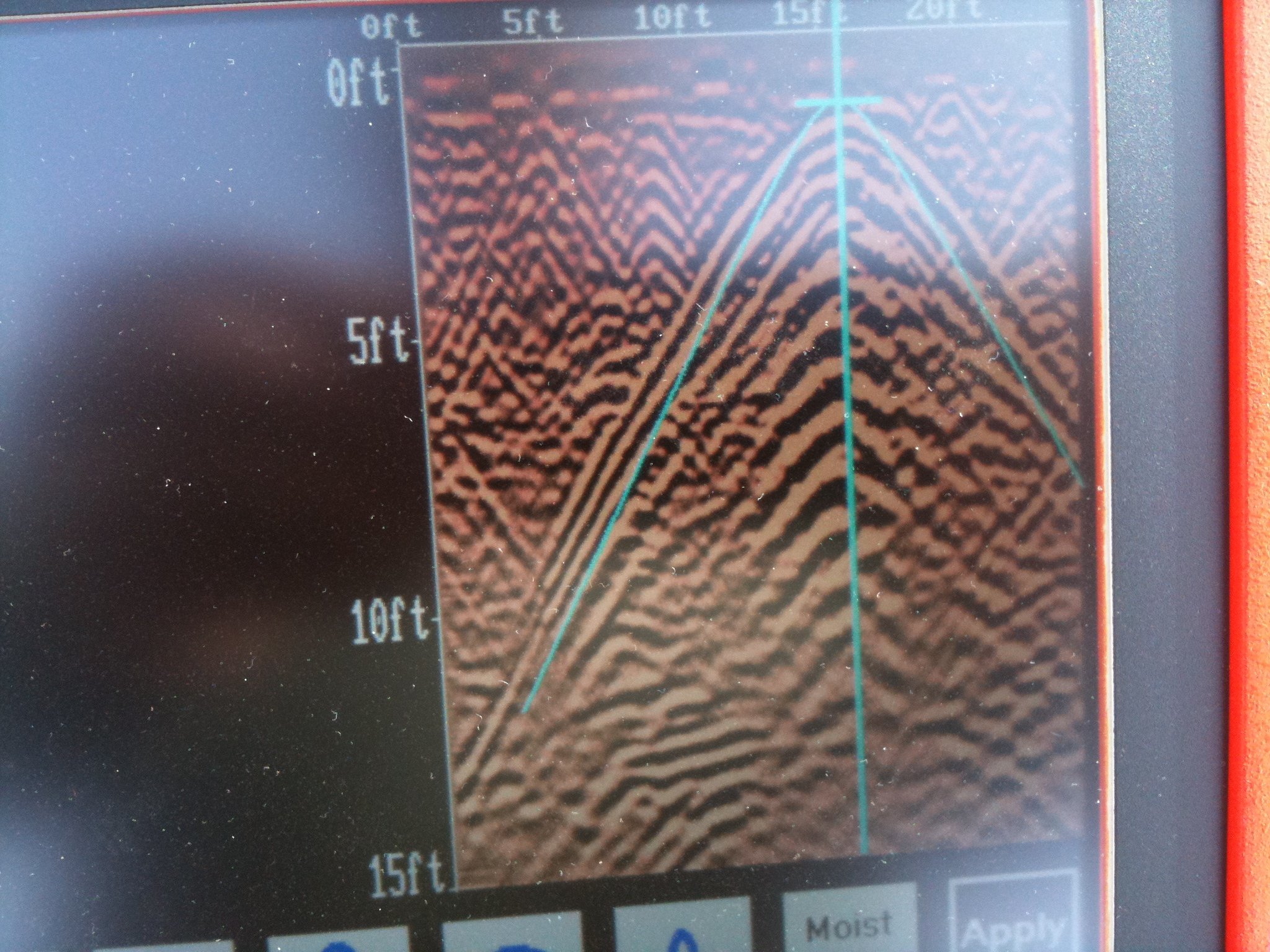
The tank is outlined in yellow lines in the photo below. The tank was under reinforced (steel) concrete making the metal detector useless, but allowing the Ground Penetrating Radar to locate the tank.
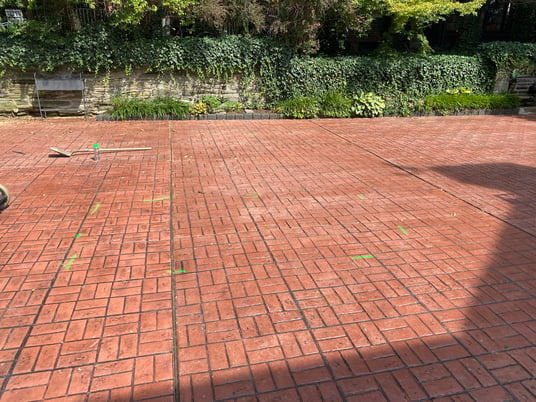
The best service directly correlates to most experienced and using the best equipment. Hiring chuck in a truck with an $800 metal detector, who also works out of their house, may offer an attractive price, but are you getting the best service? Is the metal detector really the best device?
To be fair performing a Geophysical evaluation which is what a tank sweep is, can involve using multiple technologies. When we find a buried anomaly (tank) we typically also verify the anomaly as metallic using two different metal detectors. Trust me when you find a tank that a seller didn't know exists, they want to know it's a tank, confirming a metallic signature helps the medicine go down, it is just a metal detector should not be your only technology you rely upon.
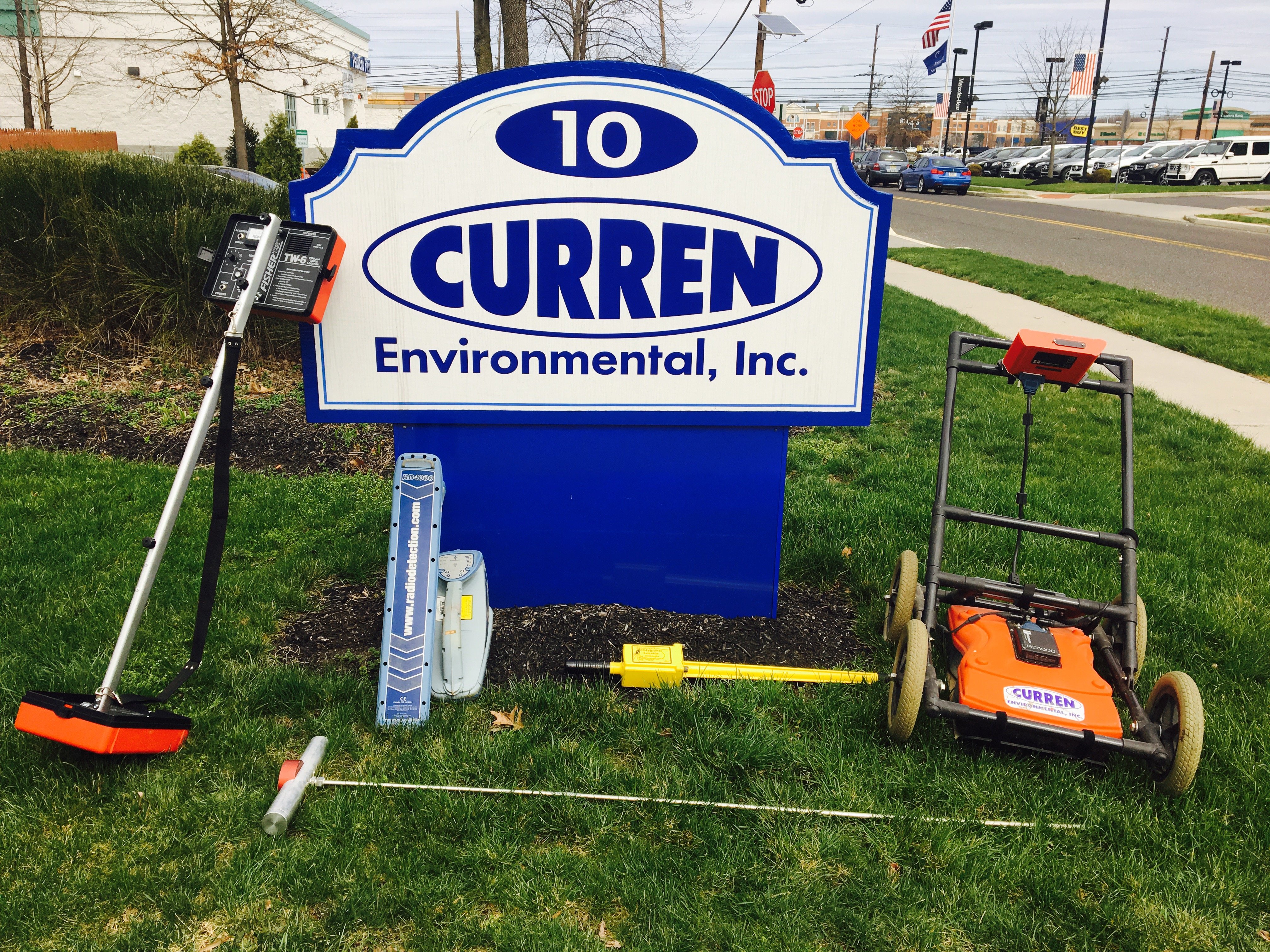
The best tanks sweeps are performed by companies that also remove tanks. There was no rhyme or reason as to where oil tanks were buried. Removing tanks give you experience in how tanks are situated on a site. Curren Environmental has been removing tanks for over 30 years and is licensed to remove tanks in 3 states. We also have removed tens of thousands of tanks, so we know what we are looking for.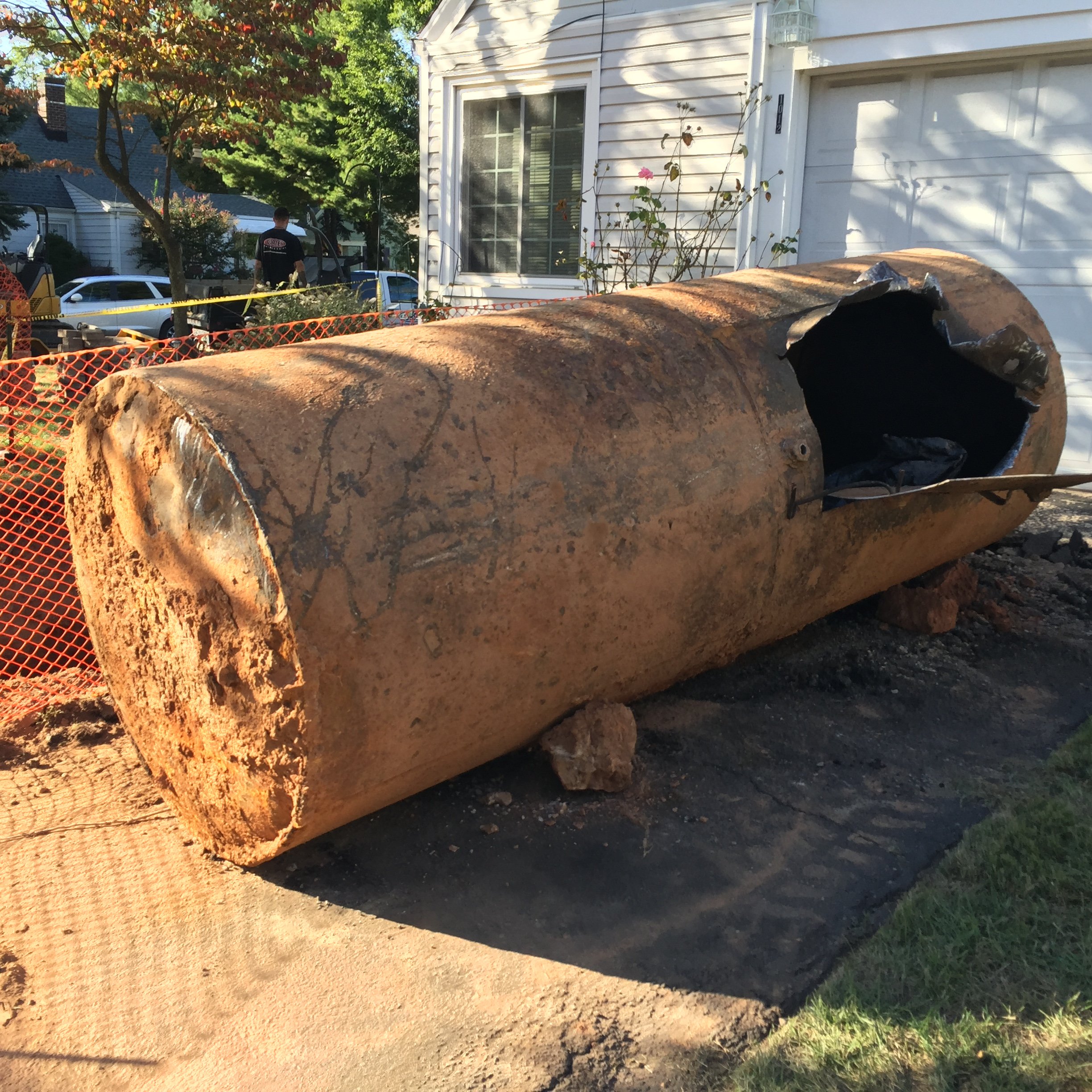
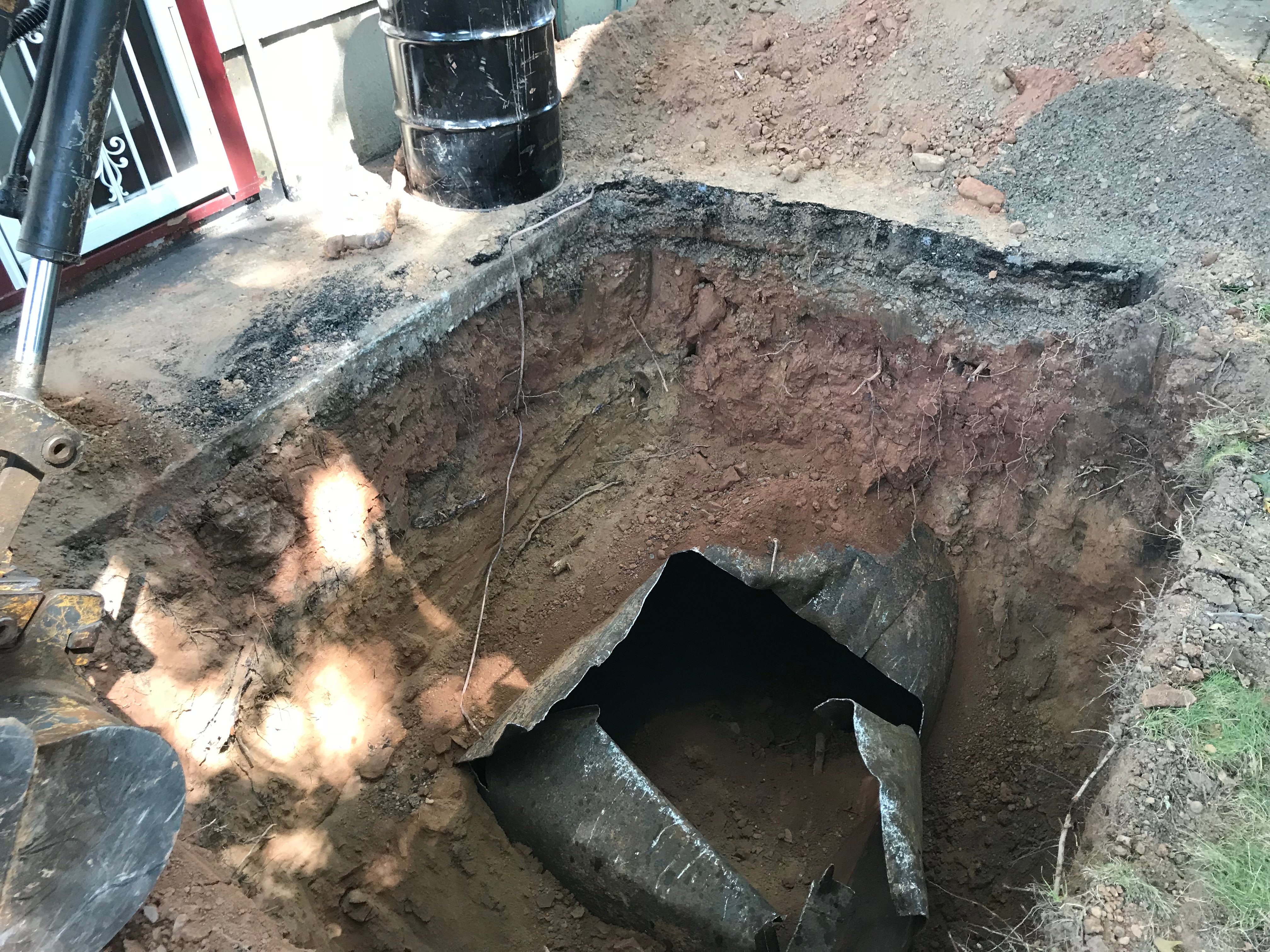
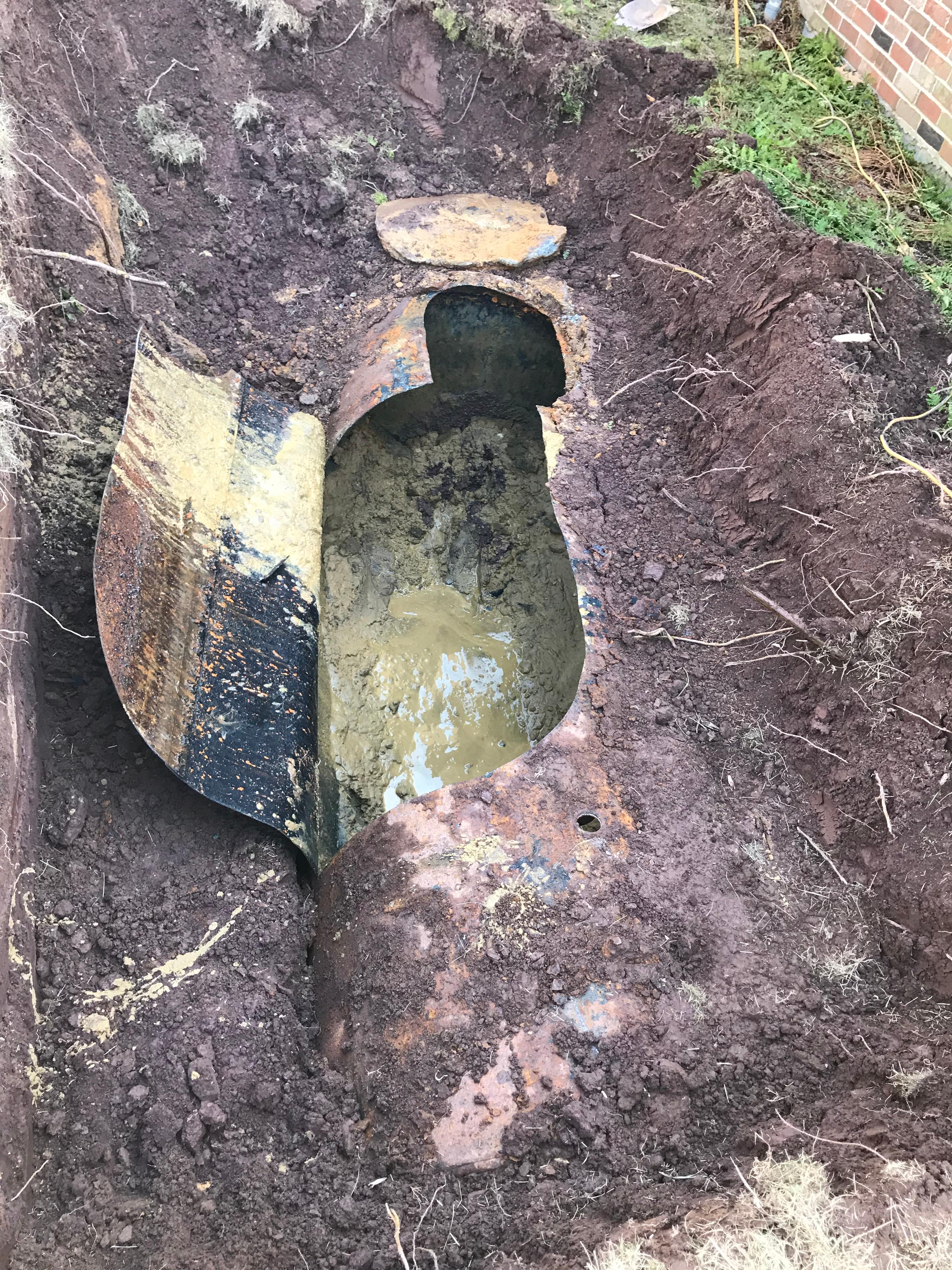
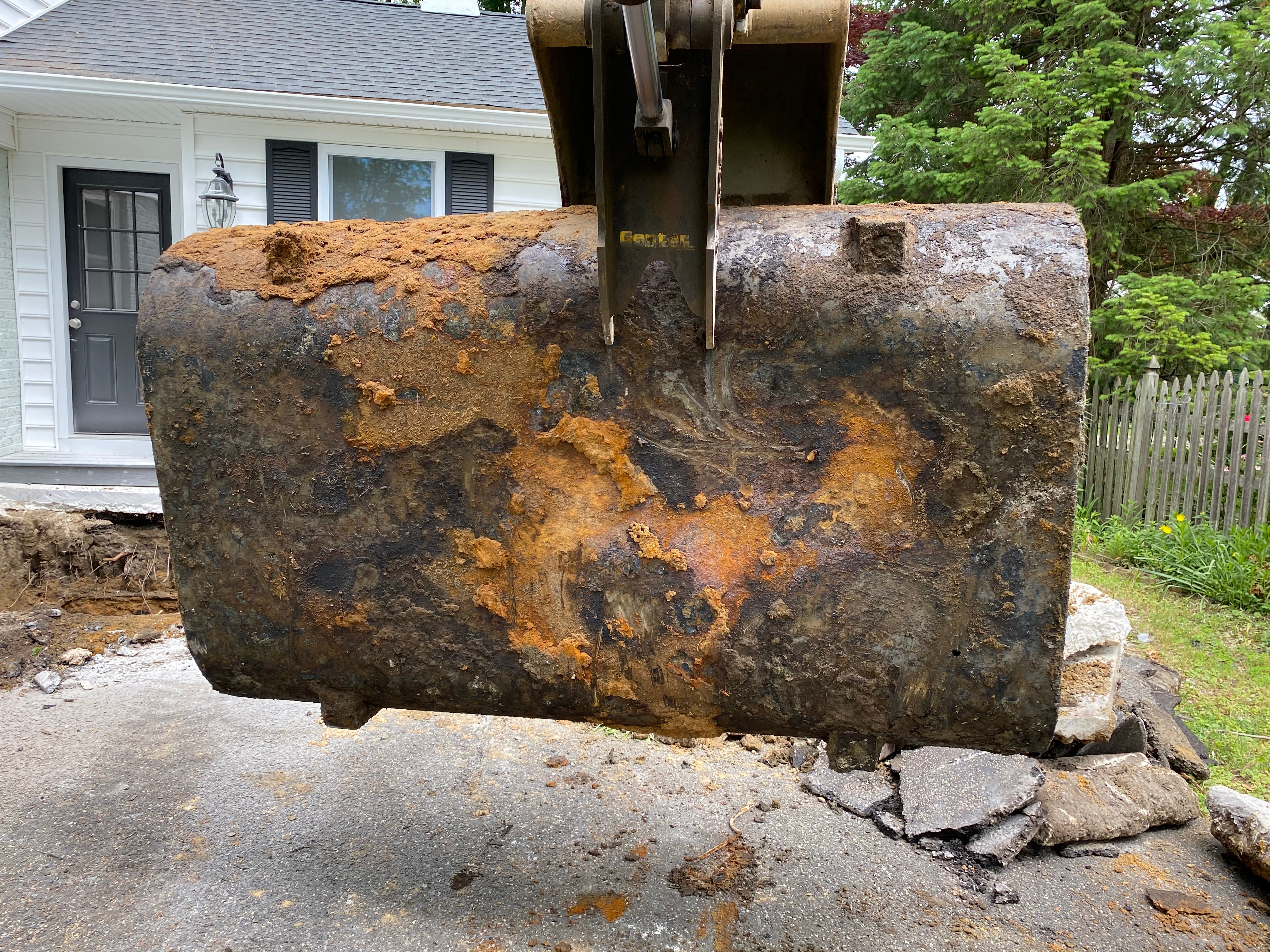
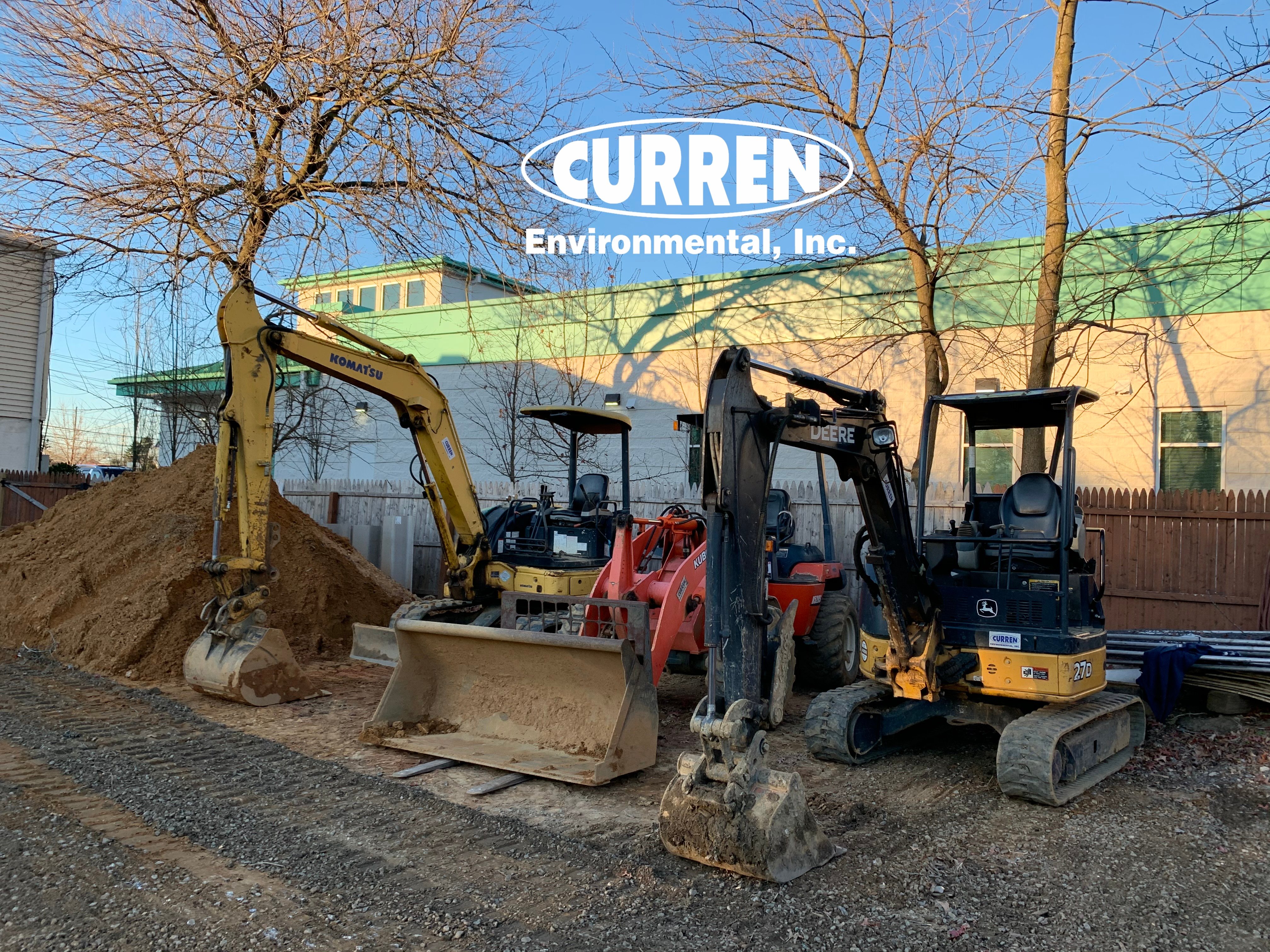
 What costs could these worst-case residential oil tank leaks involve? Every residential oil tank leak is different and these costs can approach up to a million dollars. Curren Environmental is currently working on a site that is budgeted at $540,000 for remediation and we have to let them know that’s not the worst case that we have seen.
What costs could these worst-case residential oil tank leaks involve? Every residential oil tank leak is different and these costs can approach up to a million dollars. Curren Environmental is currently working on a site that is budgeted at $540,000 for remediation and we have to let them know that’s not the worst case that we have seen. We were involved with a site where the house had to be torn down and the owner is having a problem with zoning to rebuild the house because the house footprint does not conform to the lot size and since the foundation is gone, you must comply with current zoning setback and impermeable ground cover. That’s kind of a worst case, you can’t rebuild to the same footprint.
We were involved with a site where the house had to be torn down and the owner is having a problem with zoning to rebuild the house because the house footprint does not conform to the lot size and since the foundation is gone, you must comply with current zoning setback and impermeable ground cover. That’s kind of a worst case, you can’t rebuild to the same footprint. Doctors call it a diagnosis, which is provided after testing and evaluation. Environmental consultants call it a delineation where we test and assess and evaluate options to remediate. We define the vertical and horizontal extent of contamination, what media is contaminated is it just soil, or is groundwater impacted as well? If you don’t know how big or small the problem you can’t guess the worst case, some sites only cost $75,000.
Doctors call it a diagnosis, which is provided after testing and evaluation. Environmental consultants call it a delineation where we test and assess and evaluate options to remediate. We define the vertical and horizontal extent of contamination, what media is contaminated is it just soil, or is groundwater impacted as well? If you don’t know how big or small the problem you can’t guess the worst case, some sites only cost $75,000.

